Laws should be like clothes. They should be made to fit the people they serve
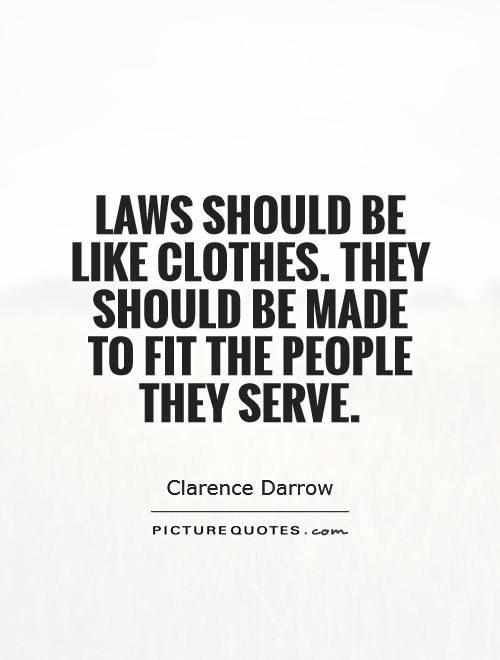
Laws should be like clothes. They should be made to fit the people they serve
Clarence Darrow, the renowned American lawyer and civil libertarian, was a staunch advocate for individual rights and freedoms. Throughout his career, Darrow fought tirelessly for justice and equality, often taking on controversial cases that challenged the status quo. One of his most famous quotes, "Laws should be like clothes. They should be made to fit the people they serve," encapsulates his belief that laws should be flexible and adaptable to the needs of society.Darrow believed that laws should not be rigid and inflexible, but rather should be tailored to the unique circumstances and needs of the people they are meant to serve. Just as clothes are designed to fit the individual body, laws should be designed to fit the individual needs and values of a society. Darrow understood that a one-size-fits-all approach to law could lead to injustice and inequality, as not all individuals have the same needs or experiences.
Darrow's belief in the importance of individual rights and freedoms was evident in his defense of clients who were often marginalized or persecuted by society. He famously defended John T. Scopes in the Scopes Monkey Trial, where he challenged the state of Tennessee's law prohibiting the teaching of evolution in public schools. Darrow argued that the law was unconstitutional and violated the rights of teachers and students to academic freedom. His passionate defense of Scopes and his belief in the importance of free speech and education made him a hero to many who shared his values.
Darrow's advocacy for individual rights and freedoms continues to inspire generations of lawyers and activists who seek to create a more just and equitable society. His belief that laws should be like clothes, made to fit the people they serve, reminds us of the importance of flexibility and adaptability in the legal system. By recognizing the unique needs and values of individuals, we can create a more just and inclusive society where everyone has the opportunity to thrive.



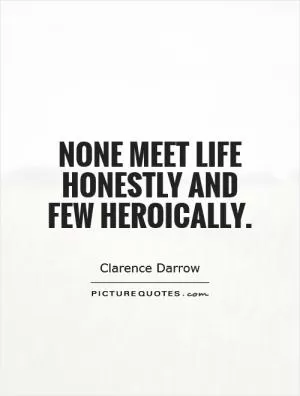

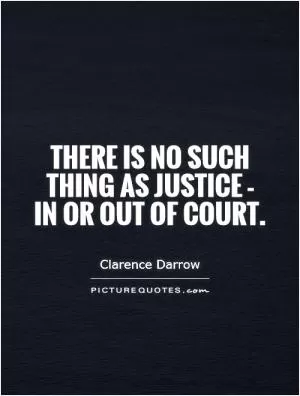
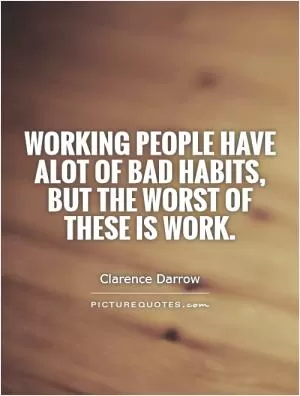
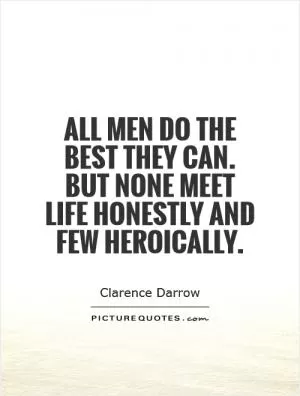
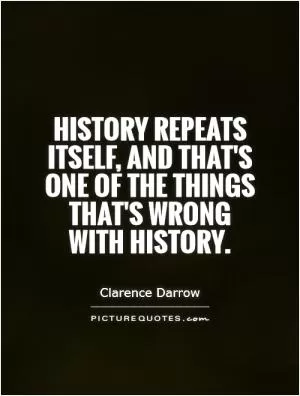

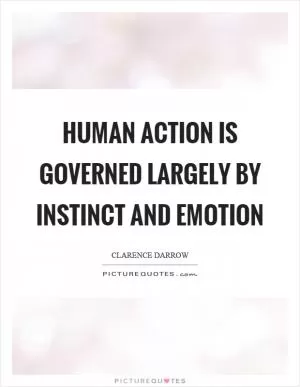

 Friendship Quotes
Friendship Quotes Love Quotes
Love Quotes Life Quotes
Life Quotes Funny Quotes
Funny Quotes Motivational Quotes
Motivational Quotes Inspirational Quotes
Inspirational Quotes